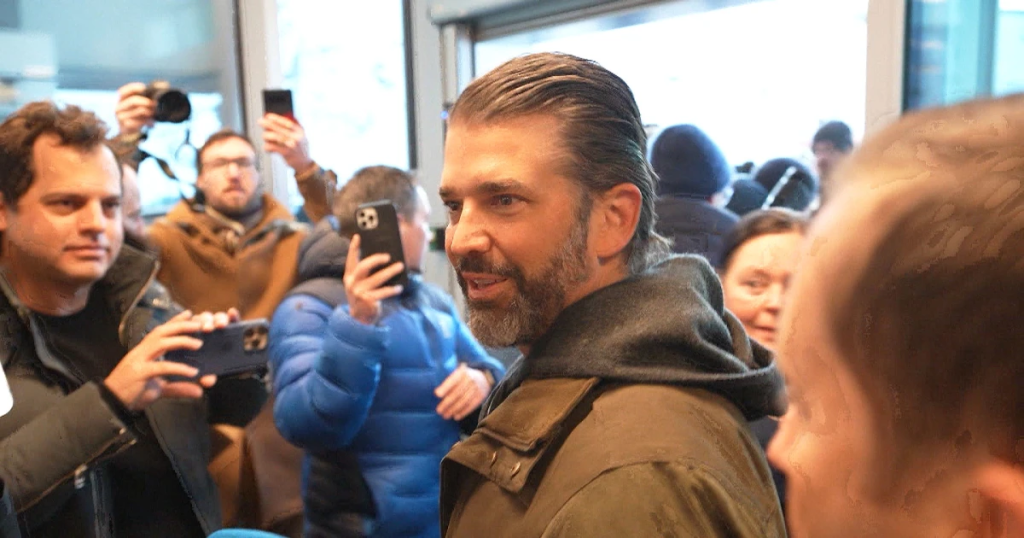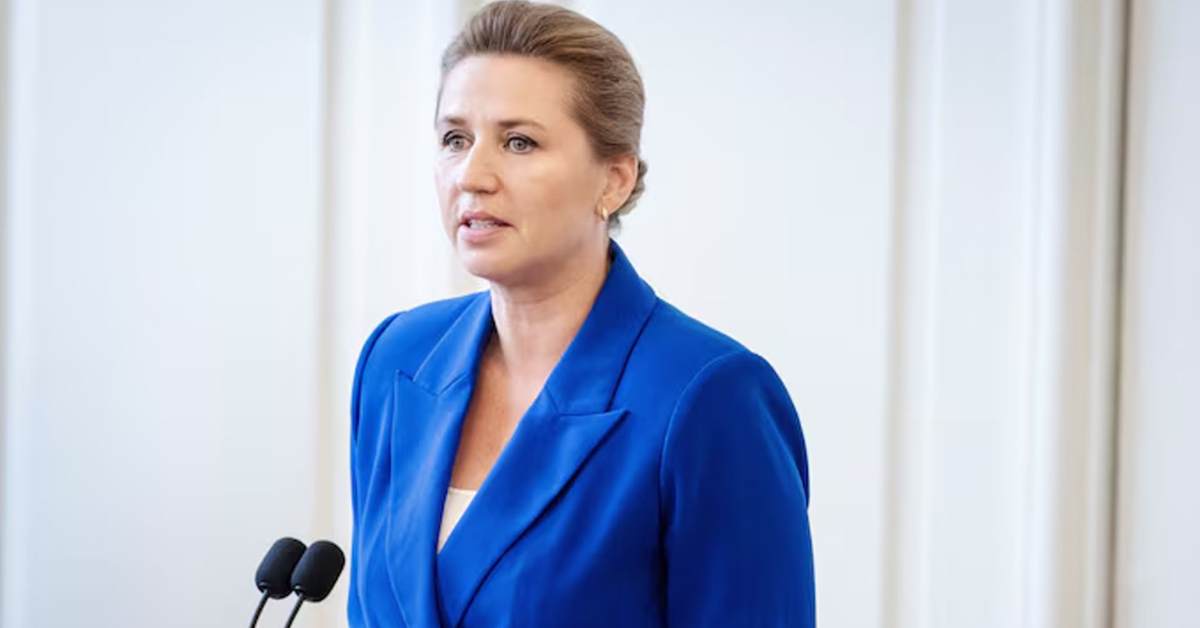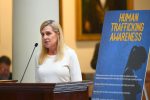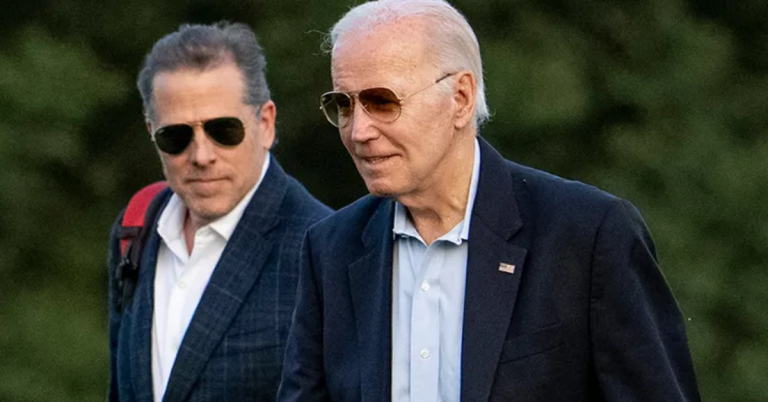Copenhagen’s cold and gloomy January weather mirrors the mood among Denmark’s leaders, who are grappling with the ongoing tension sparked by Donald Trump’s recent threats about Greenland.
“We take this situation very, very seriously,” said Foreign Minister Lars Løkke Rasmussen in a recent press statement. Trump had threatened to acquire Greenland and impose high tariffs on Denmark if the country stood in his way. But Rasmussen was quick to add that Denmark had “no ambition whatsoever to escalate some war of words.”
Prime Minister Mette Frederiksen also tried to calm concerns, dismissing Trump’s suggestion that the US might use military force to seize Greenland. “I don’t have the fantasy to imagine that it’ll ever get to that,” she told Danish TV.
Both Frederiksen and Lars Sandahl Sorensen, CEO of Danish Industry, urged calm, saying that no one had an interest in a trade war. Despite their reassurances, urgent meetings have been taking place behind the scenes in Copenhagen to discuss the ramifications of Trump’s remarks.
An Unexpected Crisis
The tensions started when Trump publicly threatened to take military action to acquire Greenland. The remarks came after Denmark rejected his 2019 proposal to purchase the island.
Since then, things have taken a more serious turn, leaving Denmark in a delicate position. Greenland’s Prime Minister Mute Egede even flew in to meet Frederiksen and King Frederik X to discuss the crisis. An emergency meeting was also held with party leaders in Denmark’s parliament to address the situation.
Despite the increasing tensions, Frederiksen has adopted a careful approach, emphasizing the importance of Denmark’s relationship with the United States. She acknowledged that the US had a valid interest in the Arctic region but made it clear that any decision regarding Greenland’s future should be made by its people alone.
“Greenland belongs to the Greenlanders… and it’s the Greenlanders themselves who have to define their future,” she said. Frederiksen’s measured approach is motivated by her desire to avoid further escalation, especially after the 2019 diplomatic incident where Trump canceled his visit to Denmark after Frederiksen called his proposal “absurd.”
Internal and International Reactions
While Frederiksen’s comments reflect Denmark’s long-standing position on Greenland’s autonomy, the growing tension with the US is not just a local issue. International leaders have also weighed in on the matter.
German Chancellor Olaf Scholz emphasized the principle of inviolable borders, warning that such a threat to Greenland would be a violation of international law. Similarly, French Foreign Minister Jean-Noël Barrot stated that the EU would not allow any country to attack another’s sovereignty.

However, there are differing views within Denmark. Some, like opposition MP Rasmus Jarlov, believe that Frederiksen’s approach has been too weak. Jarlov argued that Denmark should have been more forceful in rejecting Trump’s ideas, claiming that the US president’s actions were disrespectful to Denmark, a loyal ally. On the other hand, political analysts argue that Frederiksen’s cautious tone is necessary to avoid alienating Greenland, which is growing increasingly nationalistic.
Greenland’s Growing Push for Independence
Greenland’s future is at a crossroads. The island has long enjoyed a high degree of autonomy, with its parliament and increasing independence from Denmark. In recent years, Greenland’s leaders have spoken out against the island’s colonial past, calling for greater self-determination.
Greenland’s Prime Minister Mute Egede has been a vocal advocate for independence, tapping into a growing nationalist sentiment among the younger generation. The desire for full independence from Denmark is strong, and many predict that Greenland may hold a successful independence referendum in the near future.
However, independence could present its challenges. While Greenland’s economy is increasingly independent, it still relies heavily on subsidies from Denmark and nearly 60% of its economy is linked to Danish financial support. A move toward independence would require Greenland to make difficult decisions, particularly regarding foreign relations and defense.
Some, like Green Left MP Karsten Honge, believe that a new Commonwealth-style pact between Denmark and Greenland, based on equality and mutual respect, would be the best option. However, this idea seems unlikely, given the rising tide of nationalism in Greenland.
The Trade and Economic Impact
The economic fallout from Trump’s threat is another significant concern. A 2024 study by Danish Industry predicted that Denmark’s GDP could fall by up to three points if the US imposed high tariffs on imports from the EU, which could also spark a global trade war.
The trade sector in Denmark has been on edge as businesses brace for potential retaliation from the EU. While it remains unclear if Trump will follow through with his threats, there are concerns about the long-term economic impact on Denmark and the wider EU.
Looking Ahead
As Trump’s inauguration approaches, Denmark’s leaders are preparing for the potential fallout. While there is hope that the issue could eventually be sidelined in favor of other international concerns, the unease surrounding the Greenland situation is far from over.
For Denmark, the challenge will be balancing its diplomatic ties with the US, supporting Greenland’s autonomy, and managing the economic implications of potential trade disruptions.
The situation has left Denmark and its leaders walking a fine line with no easy answers ahead. As the world watches, it’s clear that Denmark’s next steps could shape its future relationship with both Greenland and the United States for years to come.
Disclaimer: This article has been meticulously fact-checked by our team to ensure accuracy and uphold transparency. We strive to deliver trustworthy and dependable content to our readers.







Leave a Comment